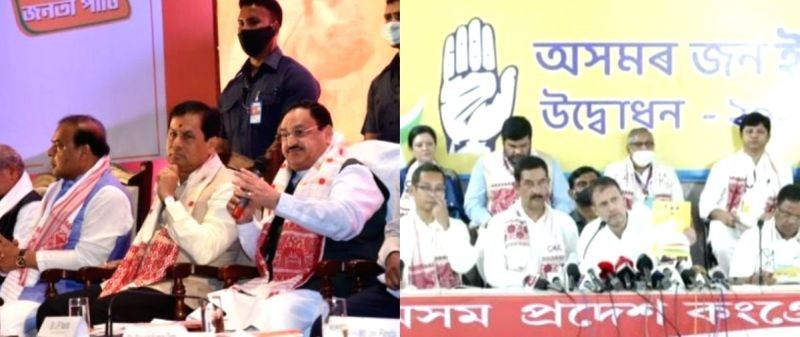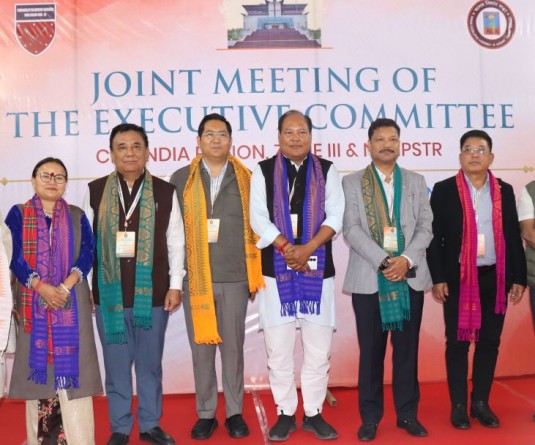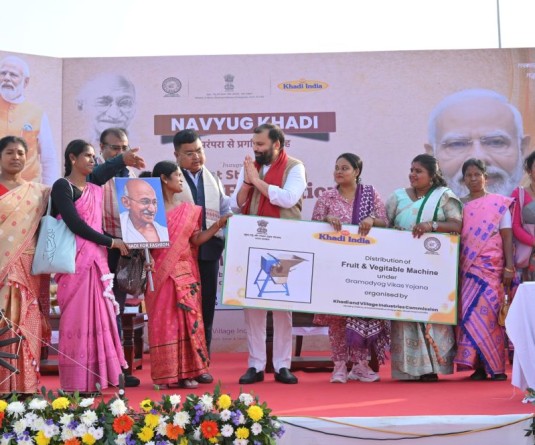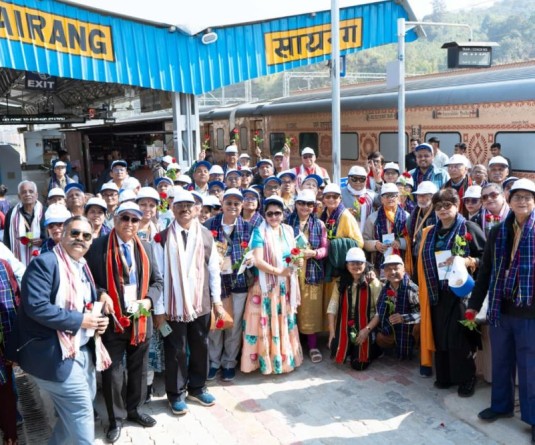IANS Photo

GUWAHATI, MARCH 24 (IANS): In the run up to the assembly elections in Assam, the ruling BJP is highlighting the "perfect NRC" more while the main opposition Congress has given top priority to CAA even as both the national parties have common issues of empowerment of women, jobs to youths besides to keep protect the Assamese culture.
The ruling Bharatiya Janata Party in its "Sankalp Patra" (manifesto) remained silent on the Citizenship (Amendment) Act -- CAA, and announced to initiate the process of correction and reconciliation of entries into the National Register of Citizens (NRC) in a structured manner to protect genuine Indian citizens and exclude all illegal immigrants.
On the other hand, the Congress as part of its top 'five guarantees' announced to repeal the CAA and vowed to expand and strengthen the administrative and legal management to deal with the NRC.
"It will be ensured that no Indian citizen is left out from the NRC," the 62-page Congress' 'Jan Manifesto' said. The Supreme Court monitored NRC published lists on August 31, 2019, excluding the 19.06 lakh people. A total of 3,11,21,004 names were included in the NRC lists out of 3,30,27,661 applicants.
A majority of those left out from the list are believed to be Bengali Muslims and Hindus besides Gorkhas.
BJP President Jagat Prakash Nadda on Tuesday released the manifesto in Guwahati. Union Agriculture Minister Narendra Singh Tomar, who is BJP's central observer for Assam, said as the CAA becomes a central legislation, it has to be implemented.
Though the BJP did not mention a single line in its 52-page manifesto, the saffron party in its West Bengal election's "Sankalp Patra" said: "The CAA would be implemented and refugees who have been staying here for 70 years would be given citizenship. Each refugee family will get Rs 10,000 per year for 5 years." Releasing the Bengal poll manifesto, Shah had said: "The CAA would be implemented during the first cabinet meeting after forming the government." However, the Union Home Ministry is yet to form rules for the new law.
The CAA, which seeks to protect the non-Muslim immigrants who entered India from Pakistan, Bangladesh and Afghanistan till December 31, 2014, is in disagreement with the Assam Accord, which was signed in 1985 by the government led by late Prime Minister Rajiv Gandhi with the Assam parties.
According to the Accord, the immigrants, irrespective of faith, who entered Assam after March 24 (midnight), 1971 are to be detected and deported.
The National Register of Citizens of 1951 is being updated in Assam based on this cut-off date. All the eight northeastern states and neighbouring West Bengal witnessed violent protests for many weeks in 2019 and in early 2020 against the CAA.
Five people had died in police firing while more than 200 persons were arrested in Assam following the violent protests in which a huge number of government and non-government assets were damaged.
Notified on January 10, the Citizenship (Amendment) Act, 2019, seeks to grant Indian citizenship to non-Muslim minorities -- Hindus, Sikhs, Buddhists, Jains, Parsis and Christians -- who migrated from Bangladesh, Pakistan and Afghanistan till December 31, 2014, after facing religion-based persecution.
Assam Congress' Media Department Chairperson Bobbeeta Sharma said : "On CAA, the BJP is absolutely silent. Why ? We want to know... Their stand on the CAA is ambiguous. In West Bengal, they say they want... in Tamil Nadu they don't want... and in Assam, they are silent." Renowned political commentator Sushanta Talukdar said that considering the sentiments of the Assamese and sensitivity of the contentious CAA, the BJP remained sceptical and making statements on a cautious note to avoid the split of its votes in the elections.
"Illegal migration is a key issue in Assam for the past many decades and obviously before every election, this become a main issue for all the political parties," Talukdar told IANS.
According to Census 2011, Muslims account for 34.22 per cent, while Hindus and other religions account for the rest of the 3.12 crore total population of Assam.
Of the 126 assembly seats, religious minorities decide the electoral fate of 23 seats and play crucial role in about seven more assembly seats in different districts. Of Assam's 34 districts, 12 per cent or more Muslim populations reside in 19 districts and in nine districts (out of 19 districts) Muslim population constitutes 50 per cent or more.
In this year's election, the BJP has put up eight Muslim candidates while the Congress fielded 17 Muslim nominees. Both the BJP and Congress in their manifestos have promised several schemes to give monthly economic support to the women, two to five lakh government jobs to youths, facilitate scopes for lakhs of more jobs in the private sectors, increase of daily wages of 10 lakh tea garden workers, control of chronic floods, besides other pledges.






